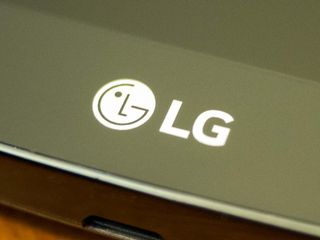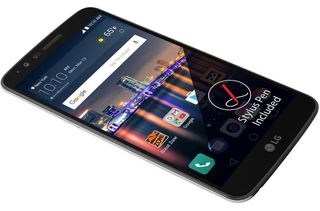Cheap Android phones shouldn't be disposable

We all know someone who has whatever phone was cheapest — or, let's face it, free — from their carrier. Not everyone is into smartphones and sometimes I envy people who can let go when it comes to pocket-sized tech. There's a good chance that person was also happy with it when they got it and as long as it still works the same way, still are. There's an equally good chance that they hate their phone because it's sluggish or won't do the things they thought it could do when they saw a commercial from the phone company.
Updates to fix bugs or patch security holes should be the norm, no matter the price.
Don't get me wrong, there is a place for very budget-orientated smartphones that never had any of the cool features we all like to talk about and never will. The idea of a "real" $50 smartphone is something nobody should ever forget about and a thing that needs to happen. But when that price jumps to $200, or $300, or even more, the way devices and the users who bought them are forgotten is ridiculous.
Most of the names we all know make a "cheap" smartphone. Hell, even Apple tried it, though the iPhone 5C wasn't exactly cheap and Apple quickly changed course. That's because there are a lot of people who don't want to spend $500 or $600 or even more on a phone. Service providers still want their business, so T-Mobile courts LG and Verizon talks with Samsung and freebies are made and delivered to carrier stores around the country, only to be left behind because somehow they aren't as worthy of customer support as the $800 phones are.

Not every phone should have animated emoji or depth-sensing cameras or built-in personal digital assistants. Just like not every car should have onboard computers or DVD players in the passenger headrest. Those are luxury additions that should be part of the price of luxury items. But just as every car should have anti-lock brakes, all smartphones should be able to benefit from progress in how we stay in touch during its normal lifetime.
That's why most people have a phone, to be able to talk or text or message the people they need to talk, text, or message with. When the phone you have paid for, and even "free" phones are paid for with outrageous service fees, has features that are broken or can give away your identity because you clicked a bad link in a message we have a serious problem.
We focus on the Pixels and Galaxy phones, but there are a lot of people satisfied with phones like the LG Stylo 3.
Don't scoff. Just because it hasn't happened yet doesn't mean that your friend with the LG Stylo 3 that T-Mobile gave him for free when he got a postpaid account isn't at risk, and when he clicks to send a multimedia message the app should work as advertised. We all focus on the expensive phones when it comes to software updates. You see discussions about waiting for updates because that new feature is a thing we all want, but when looking at the bigger picture that's trivial. What's not so trivial is that when someone finds out the next easy way to siphon the money from another's bank account or use their name to rent a car or any other form of identity theft, the only recourse for your friend with his LG Stylo is to toss it and buy a new phone or to just risk it. Nobody deserves to have to risk anything when the solution has been found and is so easy to distribute.
It's money. It's always money. And it's time to remember just who values money over their customer's needs when there is such an easy alternative. In the U.S., almost every phone is bought from a carrier store. In our LG Stylo 3 example — which is not a terrible phone (CNET rightfully calls it a cheap Note 8 alternative) — T-Mobile bought a slew of them from LG and then resold them to customers. I'm not sure you can even buy an LG Stylo 3 unlocked directly from LG. It's now T-Mobile's responsibility to let its customers know that its phone places them at risk when they click a link in a message, and what they can do about it. LG can be held responsible when T-Mobile is willing to do what it takes to provide an acceptable level of service to its customers and asks it to patch the messaging client. That's the way the chain works and a lot of grief directed to the company that manufactured a phone should be pointed towards the company that took your money instead.
Be an expert in 5 minutes
Get the latest news from Android Central, your trusted companion in the world of Android
It's always about the money and always will be. We control the money.
I'm picking on the LG Stylo 3 for a reason. It's a new phone, released in the winter of 2017 with Android 7.0 for Boost Mobile, Cricket, Simple Mobile, Verizon (prepaid) and T-Mobile. Each version is heavily customized for the operator that ordered it from LG, and the Simple Mobile version is easily unlocked and ready for use on most carriers in Latin America. So far, it sounds like a standard cheap phone that carriers can give away or sell at a low price. But last week the T-Mobile version got updated with "bug fixes and security enhancements".
LG is willing and ready to do what they can to extend the life of the Stylo 3. Apparently, T-Mobile feels it is worth the money to provide this service to their customers. I was told that Verizon will be doing the same shortly, but that leaves a large number of people who are on a prepaid carrier or who unlocked a prepaid version without that important update. Boost or Simple Mobile is probably never going to update the Stylo 3, or if they do it will be once during the life of it and be missing some vital patches. We shouldn't be willing to accept this, and in the end, it's partially our own fault for continuing to buy products that companies treat as disposable.
LG can't fix this. Google can't fix this. Individually, T-Mobile or Verizon can't fix this. It's indicative of a greater problem in the entire industry, where the goals are to move as much product as possible and never look back.
The LG Stylo 3 deserves better, and we deserve better.

Jerry is an amateur woodworker and struggling shade tree mechanic. There's nothing he can't take apart, but many things he can't reassemble. You'll find him writing and speaking his loud opinion on Android Central and occasionally on Threads.